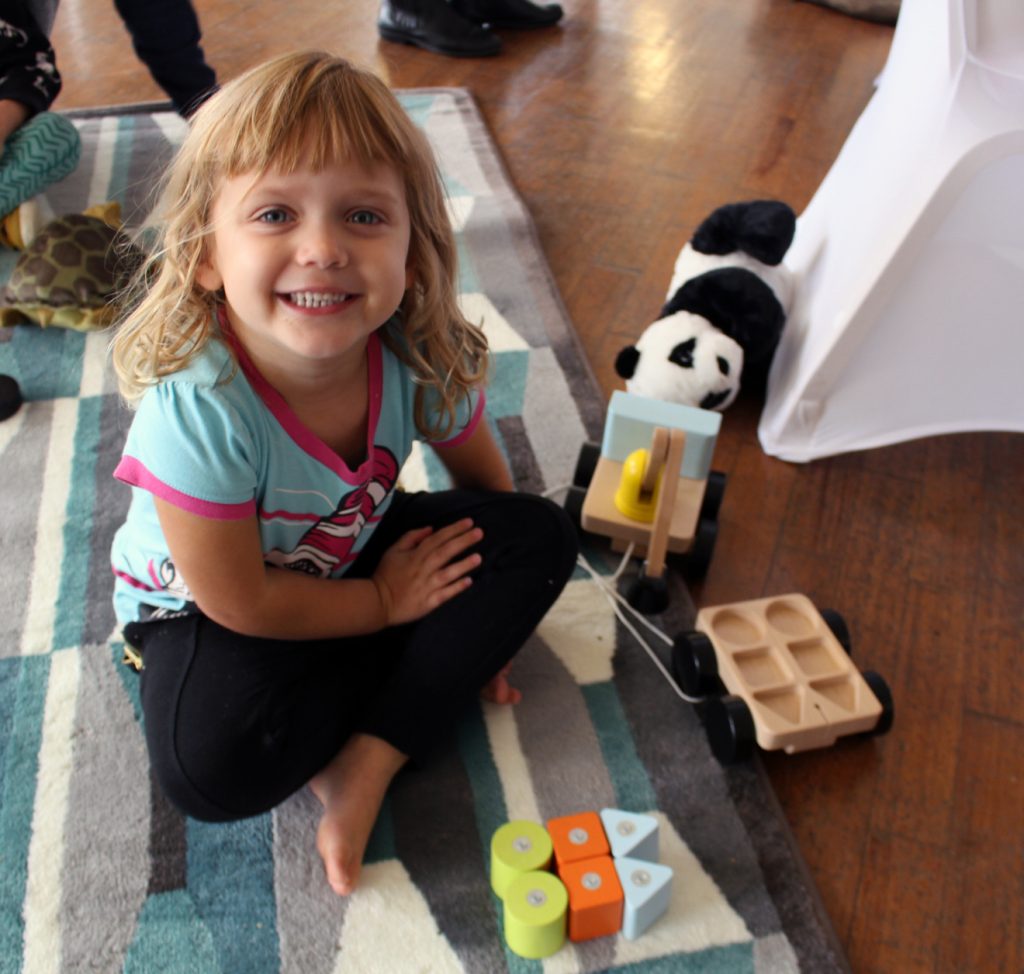Being a stay at home father comes with a range of complications. A nagging issue I have is what to say to my kids about the family set-up they live in.

This may surprise you, but neither of my daughters has ever questioned why I always do the school run, cook dinner and iron their clothes instead of mummy. Sure, this is all they have ever known, but they are growing up in a world where they are force-fed images of the stereotypical household where dad works and mum doesn’t.
Show me the children’s book or TV show that features a stay at home father. In fact, you can add to that list: stepfather, single mother and same sex couple.
Just the other day Mrs Adams was reading Izzy, our three-year-old, a bedtime story. For some reason I was hanging around near the bedroom door and I heard Izzy interrupt Mrs Adams and point to the characters in the book.
Clearly comparing the book to her own family, she said: “There’s one for the little child that goes to pre-school, there’s one for the big sister who goes to school, there’s one for the mummy who goes to work and there’s one for the daddy who picks the children up from pre-school and school.”
It was a throw-away comment, but an interesting insight into how she perceives her family. Last night I asked her outright: “Who goes to work in most families, mummy or daddy?”
“Mummy,” came the response. I explained to her that wasn’t necessarily the case, but that she came from a “cool” family where mummy went to work and daddy stayed at home.
I then regretted saying it. In her world, our family dynamic is simply normal. I should probably have kept my mouth shut.
Izzy is still a little too young to have had any negative experiences as a result of having her dad as main carer. The same cannot be said of her sister, Helen, who is eight years of age.
I’m not going to spell them out here, it’s too personal. Only thing is, when such things happen, I do feel the need to explain she lives in a “cool family” (that phrase again) and one that is a little different to the one most people live in.
While I feel the need to say something, I want to keep it to a minimum. Who knows, Helen and Izzy may grow up with a burning desire to be homemakers and never work again once they’ve had the first of their eight children. They may join the armed forces or become astronauts.
The difficulty is striking a balance. I want them to understand our family set-up is totally normal, because it is. Even so, on occasion an explanation is needed as to why X or Y has happened. What I want to avoid, however, is saying anything that makes them think they come from a special family or promote unhealthy gender stereotypes.
I possibly worry too much. Ultimately, however, I don’t want to say the wrong thing and put unhealthy or unhelpful ideas in their heads.
<







8 thoughts on “Explaining to a three year old they have a stay at home dad”
True! We have a sort of similar situation, but we just try and explain it as just a normal thing. Not make it into anything specisl. We explain That in some families mummy goes to work, in some daddy, and in some both.
Of course you have a similar thing! The trick is just to make it seem normal in a world where such families are very rarely portrayed.
We all worry too much. It’s in the Job Description, under “Worrying Too Much!” The number of times I look back at conversations I’ve had with one of my kids and thought, “That could have gone better!”
As parents, as long as at the heart of what we do and say, is loving them, and wanting the best for them, then in my opinion, we’re doing fine.
Keep blogging buddy! Love what you have to say.
Thanks chap, I guess “worrying too much” is a part of the job isn’t it? Worrying just shows you care I guess. And yes, all I want is to do the best for my kids. I hope that takes me most of the way there.
I don’t think there’s anything wrong with acknowledging that something is maybe a little unusual as long as you then own it. It IS super cool that you have an arrangement that works for you and your family. And it takes small steps to change mindsets so maybe bit by bit, as families like yours chip away at the stereotype, there will come a day where no-one will bat an eyelid at your division of labour.
Things have already changed. I think the concept of paid working mothers has become more normalised. But I think there is an assumption there that both parents go out to paid work and then pay someone else – or are lucky enough to have family – to look after their kids.
There is no “right” way but I think it’s naive to suggest there isn’t a “normal” way – if the word “normal” is taken to mean “the norm” i.e. the most usual, the most frequent, the type of statement most likely seen in a given society.
On a lighter note, kudos to you as I think I’d go mental being with my kids all day every day! Working part-time suits me fine but I’m in the lucky camp who has a mother-in-law willing to look after my kids. Without her, we wouldn’t have been able to afford to have children at all.
Yes, I mean, what is the norm? Families have always comes in incredibly complex forms and society has never really acknowledged it. Having a father as main carer is just one set up. How about foster parents, step families, adoptive parents, single parents, same sex couples, grandparents raising children and so on. All are normal, just a little less common.
Working mothers have become normalised, but women still can’t win I think. They get criticised for working and not being with their kids or they don’t work and get criticised for letting the sisterhood down. It is all very complicated.
It’s kind of cool that your youngest thinks that it’s the norm for mummies to go out to work and daddies to stay at home! I think you are a bit of a trailblazer. I agree that there is way too little variety of families in the media – I tried to find a picture book which featured a single mum when I first broke up with the ex and it was pretty much impossible. Thanks for linking up to #thetruthabout
Thanks Sam. See, that hust proves my point. You had to practically apply the single mum thing to your kids and yet couldn’t find any normal representation of it in the media. Families have always been phenomenally complex and yet we don’t acknowledge the fact. It is bizarre. Thanks for hosting #TruthAbout